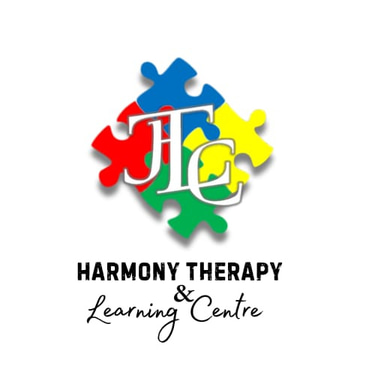Understanding Autism 101: A Compassionate Guide
2/23/20254 min read


Defining Autism: Understanding the Spectrum
Autism, or Autism Spectrum Disorder (ASD), is characterized as a neurodevelopmental disorder that manifests in various degrees of difficulty relating to social interaction, communication, and behavior. It is essential to recognize that autism exists on a spectrum, meaning that its expression can significantly differ from one individual to another. This variability can range from mild symptoms that may not interfere greatly with daily life to more severe challenges that require substantial support and intervention.
The spectrum nature of autism highlights the importance of individualized understanding and frameworks around this condition. Each person on the autism spectrum has unique characteristics, strengths, and challenges. Some individuals may have excellent attention to detail or advanced abilities in specific subjects like mathematics or technology. Others may struggle with changes in routine or sensory sensitivities. This diversity emphasizes that autism is not a monolithic condition but rather a combination of varied experiences.
Viewing autism through a lens of diversity allows us to appreciate the unique perspectives autistic individuals bring to society. They may approach problems differently and offer innovative solutions, often uninhibited by conventional thought processes. Society can greatly benefit from fostering environments where these individuals can thrive, enabling their talents to shine. It is imperative for communities, educators, and families to cultivate inclusivity and understanding, ensuring that individuals on the spectrum receive the necessary resources and opportunities.
In summary, defining autism requires a compassionate understanding of its spectrum nature, acknowledging the range of experiences and the inherent strengths within this diversity. Embracing this perspective not only helps dispel myths but also enriches our collective insight into the lives of those who navigate the world through an autistic lens.
Common Myths and Misconceptions About Autism
Autism spectrum disorder (ASD) is often surrounded by a variety of myths and misconceptions that can lead to misunderstanding and stigma. One prevalent myth is the belief that individuals with autism lack empathy. However, research indicates that people on the spectrum can indeed experience a range of emotions and empathy; they might simply express it differently or face challenges in social situations. This misunderstanding can contribute to the stereotype that individuals with autism are aloof or unfeeling, which does not represent the diverse emotional capabilities present among those on the spectrum.
Another common misconception is the idea that vaccines are a cause of autism. This belief gained traction in the late 1990s due to a retracted study published in a medical journal. Since then, numerous extensive studies have shown no causal link between vaccines and the development of autism. The overwhelming consensus among medical professionals and researchers is that vaccines are safe and crucial for public health. The persistence of this myth can perpetuate unnecessary fears among parents and undermine the importance of vaccinations.
Moreover, a frequent stereotype associates autism solely with brilliant skills, particularly in math or music. While some individuals with autism may excel in these areas, this does not apply to everyone on the spectrum. Autism manifests in a spectrum of abilities and challenges, meaning that each individual will have a unique combination of strengths and difficulties. Recognizing this diversity is vital in fostering a better understanding of autism and appreciating the individuality of those who live with it. Addressing these misconceptions helps improve the experience of individuals with ASD and their families, promoting greater acceptance and support within society.
The Importance of Early Identification and Intervention
Early identification of autism is a crucial factor that significantly improves developmental outcomes for individuals on the spectrum. Research has consistently shown that diagnosing autism and implementing appropriate interventions during early childhood can lead to profound benefits in communication skills, social interactions, and overall quality of life. By recognizing autism early, parents and caregivers are better equipped to access timely support services, which play a vital role in enhancing the child's development.
Developmental milestones serve as essential benchmarks for both parents and healthcare providers. These milestones typically include areas such as speech, social engagement, and motor skills, and recognizing when a child deviates from these norms can signal the need for further evaluation. For instance, indicators such as a lack of eye contact, delayed speech, or limited interest in social activities may act as behavioral red flags that warrant closer scrutiny. Awareness of these signs empowers caregivers to advocate for their child's needs, ensuring they receive appropriate assessments and referrals to specialized services.
Furthermore, creating a supportive environment is integral to fostering growth and development for children with autism. This supportive setting should encompass not only understanding and acceptance from family members but also resources such as educational programs and therapeutic interventions. Early access to these services means that children can learn essential life skills at a formative stage, increasing their chances of achieving independence and thriving in social contexts as they grow older.
Through the synergy of early identification, intervention, and a supportive atmosphere, autistic individuals can navigate their challenges more effectively, paving the way for improved outcomes in various aspects of their lives. A collective effort from parents, educators, and healthcare providers is essential for ensuring that children on the spectrum receive the help they need as soon as possible.
Creating an Inclusive and Understanding Society
Creating an inclusive and understanding society for individuals on the autism spectrum is essential for fostering acceptance and support. Acceptance begins with education; communities can organize workshops, seminars, and informational sessions that focus on autism and its diverse manifestations. Such initiatives enable people to gain a clearer understanding of autism, dispelling myths and misunderstandings that can lead to stigma. By fostering an environment of knowledge, we can cultivate empathy and reduce fear surrounding autism.
Advocacy plays a crucial role in promoting autism acceptance and inclusion. Local organizations can champion the rights of autistic individuals by partnering with educational institutions and businesses to create programs that accommodate and support these individuals. This can include training for teachers on how to effectively teach autistic students, as well as creating adaptive workplaces that recognize the unique strengths and challenges of neurodiverse employees. By advocating for their needs, we support their right to fully participate in society.
Promoting awareness of autism through social campaigns is another effective strategy. Engaging the media, social platforms, and community events can raise awareness and encourage understanding. Highlighting the successes and contributions of autistic individuals to society can also aid in shifting public perceptions. Activities that celebrate neurodiversity offer opportunities for positive interaction and foster friendships between autistic individuals and the broader community.
In schools, inclusion can be enhanced through collaborative teaching methods that not only benefit autistic students but also provide their peers with valuable skills in empathy and teamwork. Social settings, such as clubs and community groups, may embrace practices that ensure all voices are heard and valued. Collectively, these efforts facilitate a supportive atmosphere and promote a culture of understanding. A deeper sense of community around autism leads to a more compassionate society, where everyone can thrive.
Empowering children with diverse learning needs.
info@harmonytherapyandlearning.com
+1-876-835-8403
© 2025. All rights reserved.
